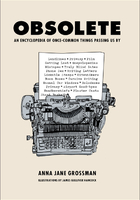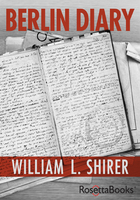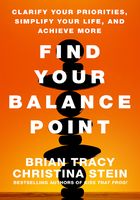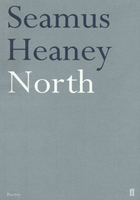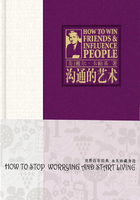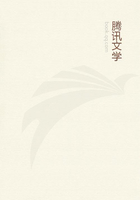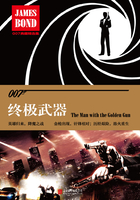Samuel Beckett wrote his first three full-length plays (Eleutheria, En attendant Godot and Fin de partie) in French. Then, in 1956, after translating some of his recent French prose fiction and En attendant Godot and Fin de partie into English, he started to write again for the theatre. This time, however, he wrote directly in English. First were two radio plays for the BBC, All that Fall and Embers, followed by a stage monologue, Krapp's Last Tape, written with the distinctively cracked voice of the Northern Ireland actor Patrick Magee resonating in his mind. All three of these plays represented for Beckett a return to his childhood or his youth in Ireland. The action in All that Fall centres on the railway station near Beckett's home in Foxrock on the Dublin and South Eastern railway line, near to Leopardstown racecourse. And Embers and Krapp's Last Tape evoke the coastline and hills of County Dublin, where, in the 1920s and early 1930s, Beckett used to walk for hours on end with his father and their Kerry Blue terrier.
Manuscript drafts of his next play, Happy Days, written in English during the autumn and winter months of 1960 and 1961, also show early signs of an Irish setting and background. The song on the musical box which Winnie listens to (and sings movingly at the end of the play) was originally going to be 'When Irish Eyes Are Smiling', before it became the 'Waltz Duet' from Franz Lehár's operetta The Merry Widow. Several half-hidden echoes of Irish poems and songs remain deeply embedded in the published text. Just as Winnie's words 'I call to the eye of the mind' quote directly from W. B. Yeats's play At the Hawk's Well, so her 'young and foolish' evokes Yeats's poem 'Down by the Salley Gardens' – of which Beckett heard a musical setting only two years before writing Happy Days, sung by an American student at a master-class of Marya Freund in Paris. The notion of Winnie smiling in the 'wilderness', as well as her memory of 'a last bumper' of champagne, also probably owes a debt to Thomas Moore's poem 'One Bumper at Parting' in the Irish Melodies, which contains the lines 'Those few sunny spots, like the present, that mid the dull wilderness smile', which seem so appropriate to Winnie's situation. But if Winnie's words retain a distinctively Irish inspiration and 'feel', in the finished text she is exiled to the English Home Counties, with memories surfacing of a scene in her adolescence with 'Charlie Hunter' in the garden at Borough Green (or, in an earlier manuscript, 'Sevenoaks') in Kent.
Rewriting the play, Beckett removed most of the localised references (one of which cited an 'aberrant rocket' striking Erin). From the very beginning Winnie had been placed in a strange, barren, hostile, almost Dantesque world, creating, as Ruby Cohn put it, 'a new stage metaphor for the old human condition – burial in a dying earth, exposure under a ruthless sun'.[1] There were many different sources of inspiration for this play, ranging from the literary (Dante's Divine Comedy, Milton's Paradise Lost, Defoe's Robinson Crusoe, among others) to Beckett's own philosophical and psychological readings in the 1930s, as well as to his personal experience of psychoanalysis with W. R. Bion in 1934–5. But Beckett also created a woman whose routine response to the cruel realities of her situation lies in optimistic clichés and ritualised habits. She has, Beckett once said, 'a profound frivolity. She's scatterbrained, she babbles.'[2] In this respect, as well as in her optimism, there may have been a real-life model or models at whose identity we can now only guess.
In the theatre of the early 1960s, before the premise of Happy Days became familiar, the starkness and boldness of the play's opening tableau provoked immediate surprise or even bewilderment in spectators, confronted as they were with the startling presence of a woman buried up to her waist in the ground, yet who behaves as if this were the most natural thing in the world. No explanation is offered in the play for Winnie's progressive entombment in the earth or for the isolated situation in which she and her husband, Willie, find themselves, surviving like two castaways on or in a mound of scorched grass, in a deserted landscape, away from all other human beings. This opening image can still surprise or shock us today, fifty years on. Simplicity and barrenness of setting have always been primary characteristics of the Beckettian stage world. In En attendant Godot (Waiting for Godot), there is only a single tree – leafless in the first act – on a country road. In Fin de partie (Endgame), the bleak set consists of an ill-lit room almost without furniture, with two windows looking out on what appears to be a dead, or dying, world. The acting area in Krapp's Last Tape (La Dernière bande) is bare: save for a single table and chair placed in a zone of bright light, the rest of the stage is shrouded in darkness. The sets of Beckett's later short plays – Play, Come and Go, That Time, Footfalls, A Piece of Monologue, Rockaby, Ohio Impromptu – have been no less stark and austere.
In Happy Days, however, the world inhabited by Winnie and her partner, Willie, is extreme and elemental as well as simple and barren. The division of light and darkness which nuances so many of Beckett's plays has disappeared, leaving only the searing light of the sun. Traditionally, of course, light has been regarded as an essential attribute of Heaven, and, throughout the play, Winnie makes a desperate attempt to convert her barren world, a most unpromising Eden, into a joy-filled, sunlit paradise, greeting her new 'day' with a tribute to the light ('another heavenly day') and responding to the most laconic pronouncement from Willie as a source (or promise) of intense pleasure. But the dramatic realities work against her most valiant efforts. For there is no respite, and, in her most lucid moments, the 'holy light' of Milton seems rather to be that of the 'hellish sun', which has already scorched the surrounding grass, which may be the cause of her parasol igniting, and which threatens to char her own flesh and that of her husband.
Winnie seeks comfort and reassurance primarily from the (token) presence of the crude and brutish Willie. She needs him as a witness to her own existence. But she needs him above all as someone to whom she can address the words that are so vital to her need to go on saying them, for 'as long as there are any'. For one of the most striking things about Winnie is her capacity to persuade herself that she can understand and assert control over reality, even though, intermittently and fleetingly, she becomes aware that a time will come when words must fail, that they will run out before the end is reached, that there will be no one left for them to address.
She also finds some degree of shared comfort in the literary quotations that she recites. Various drafts of the play indicate that these were chosen with great care by Beckett, not only for the ideas and emotions that they express, but also to ensure that they fall within her range of reference. Six of them figure, for example, in Bartlett's popular Familiar Quotations, while perhaps only one (the Charles Wolfe 'Song' from The Burial of Sir John Moore and Other Poems) is little known. Naturally, Winnie's 'classics' acquire deeper resonance if you happen to recognise the references, although these tend to be used functionally rather than allusively. They do not evoke a contrasting, richer civilisation, as T. S. Eliot might be said to have done in The Waste Land, but recall debris from a past culture in which Shakespeare, Herrick, Milton and Gray all seem to reveal the same sad truths about the human predicament, introducing, for instance (unnoticed, it would seem, by Winnie), 'woe' and the transitoriness of earthly things into her meditations. Dramatically speaking, Winnie's quotations enrich, as well as undercut, her own language.[3] But as her memory progressively fails, so the lines that she quotes appear in incorrect, fragmented or half-remembered form, and in the second act her well-tried formula, 'What are those immortal lines?', fails at times to trigger any recollection or recitation, however faltering.
Publication and production
Once the play was ready for production, there was a great deal of discussion as to where it should be premiered and who should play the very demanding role of Winnie. Beckett wanted it to be directed first by his friend Donald McWhinnie, for the Royal Court Theatre in London, in autumn 1961. He originally set his sights on Laurence Olivier's wife, Joan Plowright, to play Winnie, but this proved impossible on account of her pregnancy. Meanwhile, Alan Schneider was preparing to direct the play in New York. Schneider offered to delay the American production but Beckett declined his offer, with the result that Happy Days began its stage life at the Cherry Lane Theatre in New York on 17 September 1961. A talented American actress, Ruth White, inaugurated the role. Schneider had earlier directed the American premieres of Waiting for Godot, Endgame and Krapp's Last Tape. The published correspondence between director and author reveals how much detailed discussion of Happy Days took place by letter and by telephone: the appearance of the set, of the costumes, of Winnie herself and her partner, Willie.[4] It was mainly on account of the priority of the American production that the play was first published by Grove Press in New York at the end of 1961.
Soon after its completion, Happy Days was translated into German by Elmar and Erika Tophoven (with advice from Beckett, whose German was fluent) and produced only two weeks after the American premiere at the Schiller-Theater Werkstatt in Berlin, in late September 1961, with Berta Drews as Winnie. A British premiere was eventually mounted at the Royal Court Theatre in London in November 1962, directed by George Devine and assisted by Beckett. Brenda Bruce played Winnie, employing her natural Scottish accent. During the following year Beckett worked intensively with the French director Roger Blin and the distinguished actress Madeleine Renaud as Winnie, preparing the French premiere of Oh les beaux jours for the Odéon Théatre de France in Paris, its title drawn from Verlaine's poem about two spectral figures, 'Colloque sentimental'.
Nearly a decade later, in 1971, Beckett was invited by the Schiller-Theater in Berlin to direct Eva Katharina Schultz in the German version, Glückliche Tage. He spent many weeks visualising the play, during which many of the small cuts and changes he made to the text were conceived and put into practice. Three years later, he came over to London to attend rehearsals for a production at the newly built National Theatre, directed by Peter Hall, with Dame Peggy Ashcroft as Winnie. Director and actress were in agreement in resisting some of Beckett's more radical cuts, such as the entire scene in which the parasol bursts dramatically into flames. But when Beckett came to London again to direct the play himself in 1979 at the Royal Court Theatre, with his favourite actress, Billie Whitelaw, he introduced only a few of these major cuts. Instead, he made numerous minor changes (described in detail in the Happy Days production notebook referred to earlier), largely of a single word or phrase (e.g. 'and now' for 'what now,' 'talk' for 'speak' and so on) which have a definite part to play in marking out the phases of Winnie's old-style 'day' and in helping to reinforce an intricate choreography of word and gesture through repetition, echo and musicality.
Critical reception
According to most accounts, Ruth White's performance as Winnie in the New York premiere in 1961 was outstanding ('extraordinary in its concentration, variety, nuance and endurance', The Nation, 7 October 1961), in a production which aimed to be as faithful as possible to Beckett's text and stage directions. The play itself was received with rather less enthusiasm. The Village Voice (21 September 1961) described it as 'thinner in texture, slighter in consequence than all its forerunners' and, even among those who found much to admire in it, the view was expressed that 'Beckett's metaphor was over-extended' (Educational Theatre Journal, 13, 1961) and that the play was essentially untheatrical. Yet there was also some understanding and sensitivity of response – again from Harold Clurman in The Nation, who wrote that Beckett's play was 'a poem for the stage, a poem of despair and forbearance… to wait and suffer, perhaps to hope and pray in the empty world, is to evince a trait of nobility, even of heroism'. John Gassner took a different view of the issue of heroism: 'Never yielding an inch to sentimentality, against which the writing defends itself with sustained irony, so that human heroism also appears to be a ridiculous capacity for self-delusion, Happy Days is compact and self-contained' (Educational Theatre Journal). Beckett himself would remain adamant that Winnie was largely unaware of the sad realities of her situation ('She's not stoic, she's unaware,' he said at a rehearsal in 1979),[5] and he reacted strongly against the notion that there was anything heroic about his heroine.[6]
Predictably enough, critical response to the play in Britain was varied, and reactions to Brenda Bruce's performance were mixed. For Milton Shulman in the Evening Standard, the entire evening proved to be a colossal bore – he blamed the author, however, who 'lacked intellectual fibre', and not the actress – whereas the anonymous Times drama critic (Irving Wardle) had serious reservations about Miss Bruce's performance, finding that the demands of Beckett's language defeated her, but felt that Happy Days might well prove to be as fiercely effective onstage as Krapp's Last Tape, remarking perceptively that what the play says 'is irreducibly contained in the shape of its sentences and in its dominant theatrical image… The text is an elaborate structure of internal harmonies, with recurring clichés twisted into bitter truths, and key phrases chiming ironically through the development as in a passacaglia' (The Times, 2 November 1962). Philip Hope-Wallace in the Guardian conceded that the play had a 'certain hypnotic power', and Bernard Levin in the Daily Mail expressed the view that Brenda Bruce's performance was a remarkable tour de force in a play that 'will haunt those who see it'. W. A. Darlington also praised Brenda Bruce's 'wonderfully expressive acting in a part of the utmost difficulty' (Daily Telegraph, 2 November 1962). The subsequent Dublin production of John Beary in September 1963 had a cheerier Winnie in the person of Marie Kean, the Irish actress, whose 'beautifully managed performance' (Philip Hope-Wallace in The Guardian) was judged to be more vivid than the earlier Royal Court production, particularly in the play's moments of terror and desolation. With her Irish lilt and range of vocal tones, Marie Kean seems to have given one of the more memorable performances in English of a role that presents a huge challenge even to the most accomplished actresses.
Certainly one of the most distinguished actresses to have played Winnie was Madeleine Renaud, who gave the first performance in French with her husband, the famous Jean-Louis Barrault, in the tiny role of Willie. The production was directed by Roger Blin in September and October 1963, with much help from Beckett. Renaud's interpretation derived recognisably from the French grand theatrical tradition, yet it had a delicacy and subtlety of shading rarely associated with the broader, more rhetorical manner of the traditional French style. After the production had been brought to London for a second run in 1969, Irving Wardle wrote of Madeleine Renaud's performance: 'The woman she presents is not the bluff, earthy figure familiar from English productions of the play. She is an emblem of middle-class decorum, holding the sense of chaos and despair at bay by reliance upon a fixed code of good manners and regular habits' (The Times, 27 September 1969). At its opening performances in 1963, Blin's production divided critics, although all were agreed as to the technical brilliance and poignancy of Madeleine Renaud. Jean-Jacques Gautier, habitually hostile to Beckett's work, described the play in Le Figaro as a repulsive 'festival d'abjection' ('a festival of abasement') and an 'apothéose du néant' ('apotheosis of nothingness'), while Elsa Triolet (the wife of Louis Aragon) was prompted in Les Lettres fran?aises to a strongly worded affirmation of life – in the face of a work which she regarded as truly 'atroce' ('dreadful'). Pascal, the Book of Job and the figure of Prometheus were all invoked by Gilles Sandier in a lengthy review of the play in Arts, in which Oh les beaux jours was favourably compared with Claudel's epic historical drama Le Soulier de Satin.
Madeleine Renaud's performance as Winnie has been the most familiar and most prestigious of all the European productions, not least for being performed in so many countries – including Italy, Switzerland, Yugoslavia, Britain and America. The American tour provided New York audiences with an opportunity to compare the French and American performances, Madeleine Renaud alternating at the Cherry Lane Theatre with Ruth White. Harold Clurman found that Madeleine Renaud produced a superbly accomplished 'remembered performance', classically French, but lacked some of the freshness, spontaneity and humanity of Ruth White (Nation, 201, 18 October 1965). Madeleine Renaud certainly projected a serene, lyrical and moving Winnie, with which not everyone would agree, and her view of the play as 'une pièce d'amour' ('a play about love') might seem a pale, unduly optimistic reading.
There have been a number of striking later productions of Happy Days involving Billie Whitelaw, Irene Worth, Natasha Parry (acted in French and directed by Peter Brook); more recently, Felicity Kendal (directed by Sir Peter Hall) and Rosaleen Linehan in Karel Reisz's production for Dublin's Gate Theatre. Fiona Shaw, in a production which began life at the National Theatre's Lyttelton Theatre in London in January 2007, was placed in front of a large painting of a desolate desert, on a wide stage littered with huge blocks of stone and concrete, evoking an apocalyptic vision that reminded The Stage's critic of 'some Middle Eastern bunker' and others of an urban landscape after a nuclear holocaust. There have been many variants on the 'expanse of scorched grass rising centre to low mound' described in the opening stage direction. Some have been experimental and eccentric, others wild: a mound resembling a bale of hay, a rocky promontory, a pile of cardboard boxes. Those that have been most effective have tended to be closest to the 'maximum of simplicity and symmetry' of Beckett's stage directions and to have focused without needless distraction on the brightly lit figure of Winnie in the 'exact centre of mound'.
Happy Days has by now taken its place with Waiting for Godot, Endgame and Krapp's Last Tape among the canonical dramas of the twentieth century. Perhaps Beckett's most impressive achievement is to have created an ordinary middle-class woman, a creature of habit par excellence, able to speak only in commonplaces, and yet to have made from this a work of searing power: a play that recalls, as one French critic put it, 'the immobility of the great sacred theatrical works, in which human speech sufficed to fill and animate the theatrical space, and which consisted entirely of the essential realities to which these texts return one: Time, Space, and the Word'.[7]
James Knowlson
Notes
[1] Ruby Cohn, The Comic Gamut (New Brunswick, NJ: Rutgers University Press, 1962), p. 257.
[2] Samuel Beckett speaking at a rehearsal of Happy Days in London in 1979; recorded by Martha Dow Fehsenfeld and cited in Happy Days: The Production Notebook of Samuel Beckett, ed. James Knowlson (London: Faber and Faber, 1985), p. 17.
[3] Ruby Cohn, Back to Beckett (Princeton, NJ: Princeton University Press), p. 181.
[4] Maurice Harmon (ed.), No Author Better Served: The Correspondence of Samuel Beckett and Alan Schneider (Boston, Mass.: Harvard University Press, 1998).
[5] Happy Days: The Production Notebook of Samuel Beckett, p.17.
[6] Samuel Beckett in conversation with James Knowlson at the Hyde Park Hotel, London, May 1979.
[7] Gilles Sandier, Arts, 935, 6–12 November 1963.

